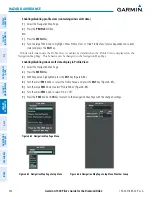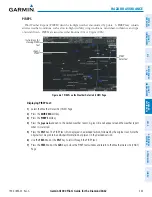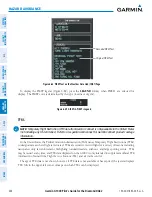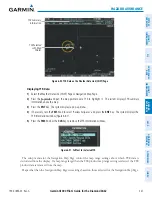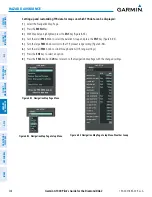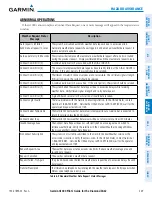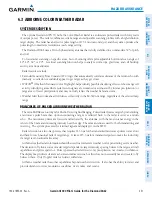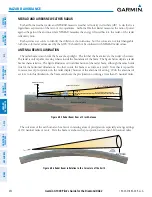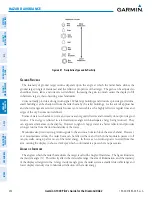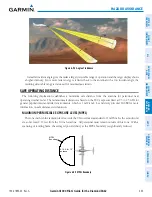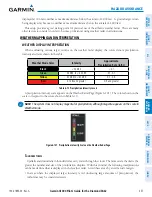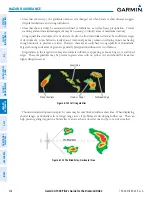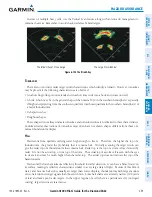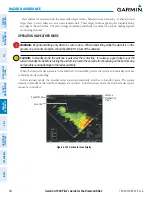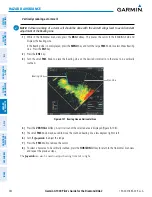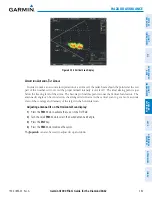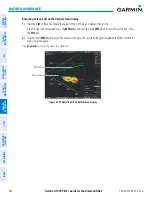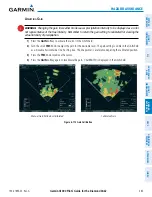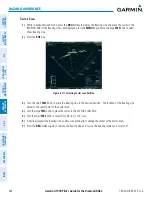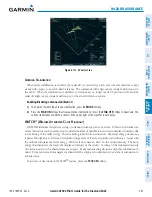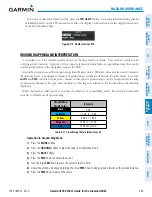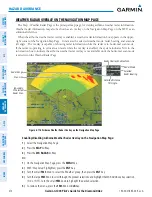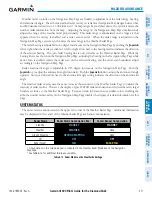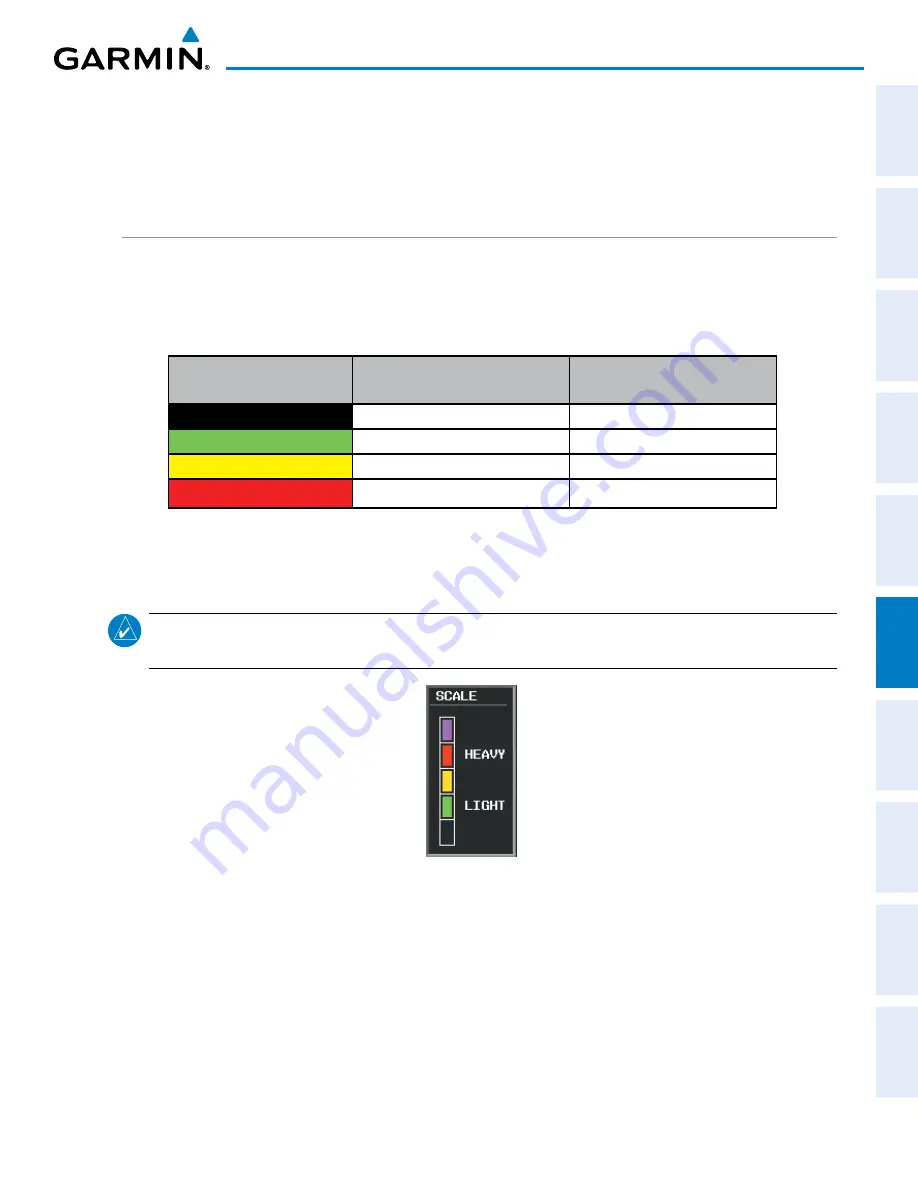
190-01895-00 Rev. A
Garmin G1000 Pilot’s Guide for the Diamond DA62
357
HAZARD AVOIDANCE
SY
STEM
O
VER
VIEW
FLIGHT
INSTRUMENTS
EIS
AUDIO P
ANEL
& CNS
FLIGHT
MANA
GEMENT
HAZARD
AV
OID
ANCE
AFCS
ADDITIONAL
FEA
TURES
APPENDICES
INDEX
displayed at 10 nm would have a maximum distance below the aircraft of 4,000 feet. A ground target return
being displayed at five nm would have a maximum distance below the aircraft of 2,000 feet.
This setup provides a good starting point for practical use of the airborne weather radar. There are many
other factors to consider in order to become proficient at using weather radar in all situations.
WEATHER MAPPING AND INTERPRETATION
WEATHER DISPLAY INTERPRETATION
When evaluating various target returns on the weather radar display, the colors denote precipitation
intensity and rates shown in the table.
Weather Mode Color
Intensity
Approximate
Precipitation Rate (in/hr.)
Black
< 23 dBZ
< .01.
Green
23 dBZ to < 32 dBZ
.01 - 0.1.
Yellow
32 dBZ to < 41 dBZ
0.1 - 0.5
Red
41 dBz and greater
0.5 and greater
Table 6-10 Precipitation Intensity Levels
A precipitation intensity scale appears on the Weather Radar Page (Figure 6-101). The colors shown on the
scale correspond to the colors shown in Table 6-10.
NOTE:
The system does not display magenta for precipitation, although magenta appears on the scale in
Weather mode.
Figure 6-101 Precipitation Intensity Scale on the Weather Radar Page
t
hunDeRstoRms
Updrafts and downdrafts in thunderstorms carry water through the cloud. The more severe the drafts, the
greater the number and size of the precipitation droplets. With this in mind, the following interpretations
can be made from what is displayed on the weather radar. Avoid these areas by an extra wide margin.
• In areas where the displayed target intensity is red (indicating large amounts of precipitation), the
turbulence may be considered severe.


